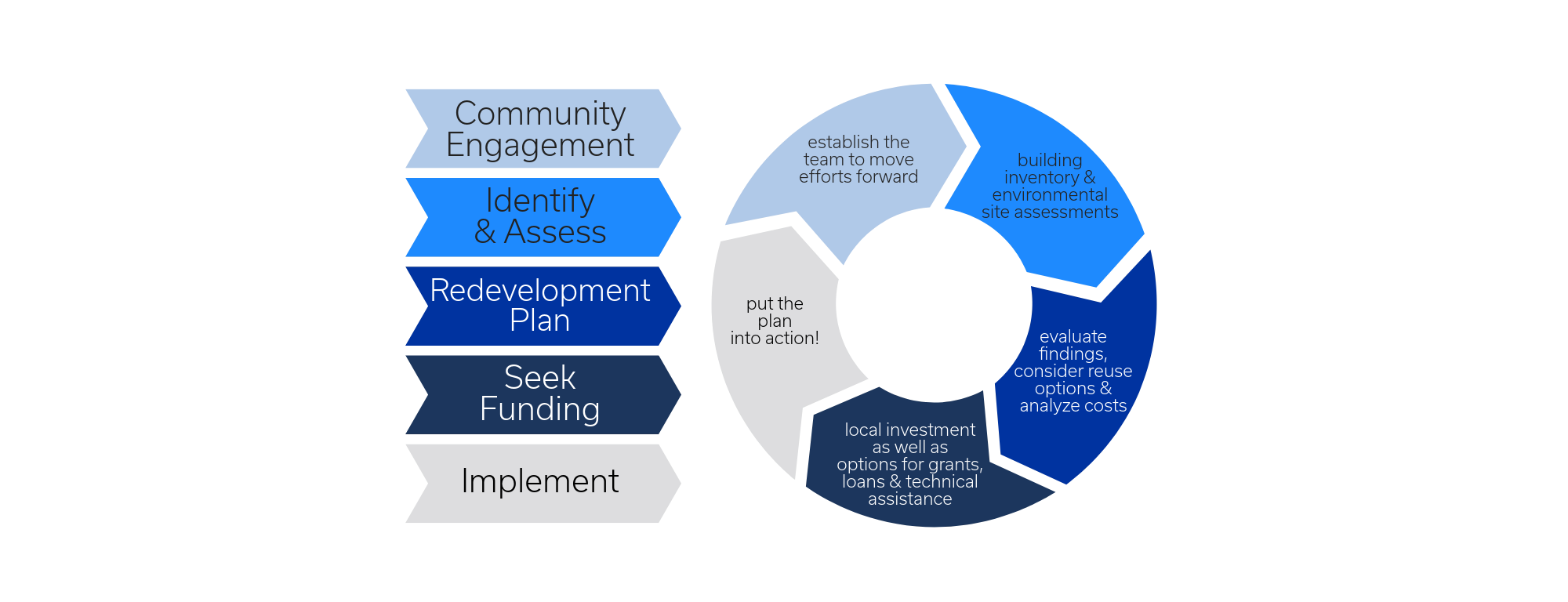Brownfield Technical Assistance Program
Join Us at the FREE Brownfield Bootcamp - March 21-22
Interested in learning how the brownfield program can support your community’s redevelopment efforts? Join us in Frankfort at our two-day workshop to learn how to utilize services offered by the brownfield program. Learn the basics in our introductory track on day one and prepare for submitting a grant this fall with a deep dive on day two.
Blueprint Kentucky, along with Kentucky Energy and Environment Cabinet's Department of Environmental Protection Brownfield Program, offers technical assistance for brownfield redevelopment.
What are Brownfields?
Brownfields are found in neighborhoods and communities across the nation. Abandoned buildings, former factories and other blighted structures may be in urban or rural areas. Often, brownfields raise environmental and health concerns for communities, beyond the visual blight.
Examples include:
- Former gas stations, auto repair shops
- Former dry cleaning establishments
- Former factories, schools, hospitals
- Buildings with asbestos, lead and other hazardous materials
- Abandoned landfills, old mining sites, vacated lots, fallow land
- Old railyards and shipyards
In the United States, there are an estimated 450,000 brownfields. Brownfields are properties that contain or may contain a hazardous substance, pollutant or contaminant, complicating efforts to expand, redevelop or reuse them. Cleaning up and reinvesting in these properties:
- Improves and protects the environment
- Increases local tax bases
- Facilitates job growth
- Makes use of existing infrastructure
- Takes development pressures off green spaces and working lands
Brownfield Opportunities
Although brownfield properties are problems for a community, they can be redeveloped and turned into opportunities to clean up the environment, boost the local economy and build a stronger community. Brownfields can be redeveloped by private developers, local governments or through public-private partnerships.
Brownfields can become:
- Remodeled buildings with energy-efficient features
- Riverfront with entertainment and restaurants
- Park or recreation areas
- New retail/commercial property
- Residential housing
- Community centers
- Community gardens or farmers markets
Brownfield Redevelopment Planning Process

Watch our Webinar Series
View our recorded webinars and sign up to join us for the next in the series.
